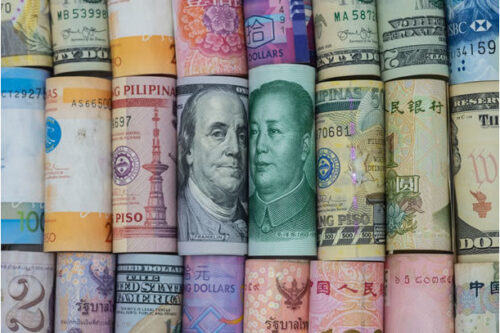
A new ranking has identified African nations where obtaining foreign exchange is relatively seamless. This assessment, which considers financial infrastructure, trade policies, and banking systems, emphasizes the differences in foreign currency availability across the continent.
Access to foreign exchange is critical for businesses and individuals involved in international trade, investment, and travel. However, many African economies struggle with currency shortages due to economic volatility, fluctuating commodity prices, and policy constraints. Some nations, however, have made significant strides in improving foreign currency accessibility, as highlighted in the Absa Africa Financial Markets Index.
The ranking evaluates how efficiently businesses and individuals can access foreign exchange for various transactions. South Africa tops the list with a score of 87 out of 100, benefiting from a well-developed financial market, deep capital reserves, and a flexible exchange rate system. The country’s transparent monetary policies and corporate credit ratings have also enhanced currency accessibility.
South Africa (87/100) – South Africa leads the continent in foreign exchange access, supported by a robust banking system and financial infrastructure that facilitates smooth currency transactions.
Madagascar (79/100) – Despite economic hurdles, Madagascar maintains a functional foreign exchange system, allowing relatively easy access to major international currencies.
Mauritius (76/100) – Mauritius ranks third due to its well-structured financial infrastructure, which supports international trade and business, ensuring seamless currency transactions.
Kenya (70/100) – Kenya’s banking sector, coupled with a strong mobile money ecosystem, contributes significantly to its foreign exchange accessibility.
Botswana (68/100) – Botswana’s stable monetary policies ensure foreign currency availability, benefiting both businesses and travelers.
Egypt (67/100) – Egypt boasts an advanced banking system and favorable foreign exchange policies that facilitate access to major international currencies.
Uganda (67/100) – Uganda’s financial sector has experienced steady growth, enabling easier access to foreign currency for trade and investment.
Morocco (65/100) – Morocco’s foreign exchange market remains dynamic, supporting the country’s thriving trade and tourism industries.
Cabo Verde (65/100) – With a reliance on tourism and remittances, Cabo Verde maintains relatively stable foreign currency access for businesses and individuals.
Tanzania (60/100) – Tanzania’s growing financial system supports foreign exchange availability, facilitating trade and investment activities.
The ranking emphasizes the significant variations in foreign currency access across Africa. Countries with strong financial systems, stable trade policies, and diversified economies tend to maintain better foreign exchange availability. For businesses and investors operating within the continent, understanding these differences is crucial for strategic planning and financial decision-making.


